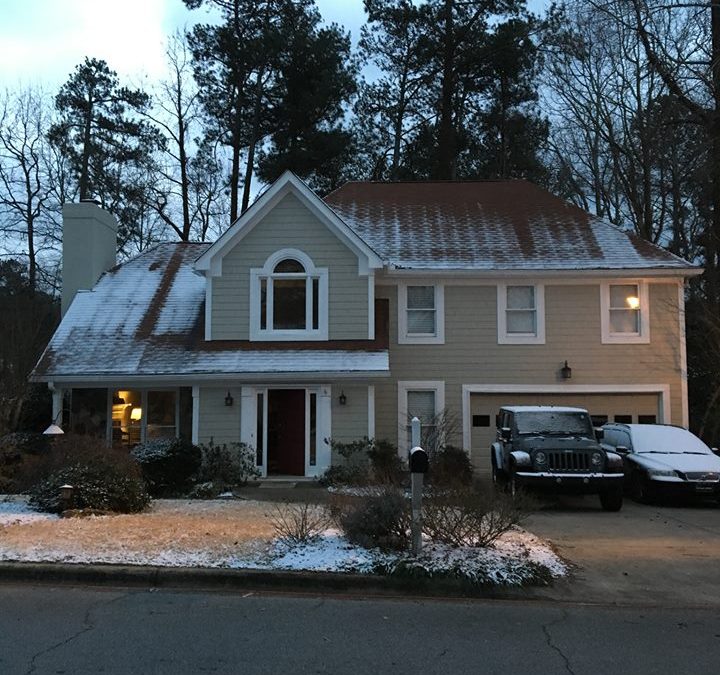That’s what has occupied most of my thoughts of late … a place to call home. Over the years Amy and I have been pretty good at nesting for ourselves places to call home – even when we knew our stay would be temporary. Our first “home” was a tiny garage apartment in Rome, Georgia. Whenever our landlady would crank her ’72 Buick, the roar of the motor would shake books off of our shelves. Our next home was our seminary apartment. It was an efficiency unit which meant that you could place your hand in every room in the apartment while seated at the kitchen table. We loved our apartments, even though through youthful eyes we longed for something more, something better.
Since seminary we have lived in two very fine parsonages that we have called home. We have lived in temporary homes (indeed, aren’t all homes temporary?) for months at a time until we could find something more permanent.
Last week, after living for three months out of suitcases, we moved to Roswell, Georgia and into a place we call home.
Now I work alongside others who, in part, seek to provide a home for those who are often most vulnerable at not finding a place. The work of Developmental Disabilities Ministries can be summed up in its byline: Hope Lives Here. Everyone should have a place that they can call home. Each time I hug a neck or share a few words with these special friends I am so grateful they too feel the welcome and the hope of home.
Home is much more than a slice of real estate or a postal address. It is as much a residence of the spirit and province of the consciousness. Do you remember when Jesus reminded his disciples, “… do not be anxious about your life, what you shall eat or what you shall drink, nor about your body, what you shall put on. Is not life more than food, and the body more than clothing?” (Matthew 6:25) These words may not mean much to those of us who stay air-conditioned in the summer and centrally heated in the winter, but what about those families who lost their homes in Syria? There are those rendered homeless from earthquakes, tornadoes and other natural disasters.
If nothing else these calamities are brusque reminders of the temporal natures of our houses. To be truly home, however, has a lasting permanence. For ancient Israel, to be home was not necessarily to be in a certain geographic region but to be with God. All of us will spend the rest of our lives searching for and making homes. Please do not confuse them with bricks and mortar. These will one day come to nothing. Our home is with God and this may take us to the far corners of the globe or simple down the shaded street.
Rev. Barbara Brown Taylor writes, We can serve the God who feeds and clothes and shelters by doing some of that ourselves, but always with the knowledge that it is God who provides -no – who is our true and only home, in whose household there is plenty – for the birds of the air, for the lilies of the field, and for every one of us.
Grace be with you,
Greg


Recent Comments